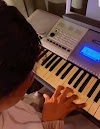Neglect These, and You'll Regret It: The Struggles of Even Pro Piano Players**
### 5 Essential Topics Every Intending Piano Player Should Know
Many aspiring pianists dream of playing beautiful music effortlessly, but even professional pianists who have neglected crucial foundational advice often find themselves struggling. Mastering the piano is not just about practice but also about understanding key principles and habits that sustain your musical journey. Here are the first five essential topics every intending piano player should know:
#### 1. **Proper Posture and Hand Position**
Understanding the correct posture and hand positioning is crucial for playing the piano efficiently and preventing injuries. Slouching or incorrect hand positions can lead to strain and long-term physical issues. Many seasoned players regret not learning this early as it impacts their playing comfort and technique.
**Key Points:**
- Sit at the right height with relaxed shoulders.
- Keep your back straight but not rigid.
- Position your hands with slightly curved fingers, and use the natural weight of your arms.
#### 2. **Basic Music Theory**
Learning basic music theory is essential for understanding how music works. It helps you read sheet music, understand scales, chords, and the structure of pieces. Players who skip this often struggle with advancing beyond basic songs and improvisation.
**Key Points:**
- Learn to read music notation.
- Understand scales and key signatures.
- Study chord progressions and basic harmony.
Etc.
#### 3. **Regular Practice Routine**
Establishing a consistent practice routine is fundamental to progress. Sporadic or unfocused practice can lead to frustration and slow advancement. Even experienced pianists who neglect regular practice find their skills plateauing or regressing.
**Key Points:**
- Set a specific time for daily practice.
- Focus on different aspects: scales, pieces, and technical exercises.
- Use a metronome to improve timing and rhythm.
#### 4. **Listening and Ear Training**
Developing your ear is as important as practicing with your hands. Ear training helps you understand pitch, harmony, and rhythm intuitively. Many advanced players regret not incorporating ear training early on, as it significantly enhances musicality and improvisation skills.
**Key Points:**
- Practice identifying intervals and chords by ear.
- Transcribe simple songs by listening.
- Sing along with your playing to internalize pitch and melody.
#### 5. **Maintenance and Care of the Instrument**
Taking care of your piano is often overlooked but is essential for its longevity and performance. Poor maintenance can lead to tuning issues and mechanical problems, which can be a headache for even professional pianists.
**Key Points:**
- Keep your piano in a stable environment with controlled humidity.
- Regularly clean the keys and the exterior.
- Schedule professional tuning and servicing.
### Embrace These Foundations
By embracing these foundational topics, you set yourself up for a smoother, more rewarding piano-playing journey. Avoid the pitfalls that many professional pianists have experienced due to neglecting these basics. Start strong, build good habits, and watch your skills flourish. Share this post with fellow aspiring musicians to spread the wisdom and ensure a harmonious musical adventure for all.










0 Comments